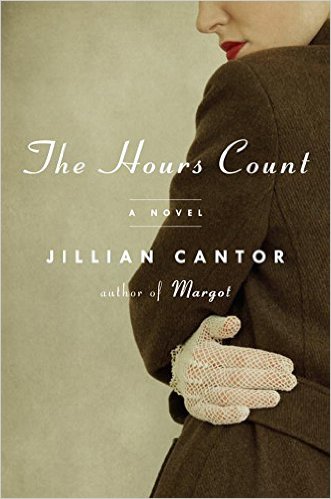
by admin
Truth Is Even Stranger than Cold-War Fiction: “The Hours Count,” by Jillian Cantor
 Meet Millie Stein, a New York City housewife, circa 1947. Millie’s saddled with a remote, Russian-born husband, a son who may or may not be autistic and a mother who favors Millie’s perfect, suburb-dwelling older sister. The only ones on Millie’s side are her beloved Bubbe Kasha and her new friend, Ethel Rosenberg. In The Hours Count, by Jillian Cantor (Riverhead, $26.95), Millie and her family are fictional creations, but Ethel and her husband, known here as Julie, are anything but. Cantor does a convincing job of weaving together the fictional and the historical, and artfully shuttles back and forth between the night Ethel and Julius are put to death in the electric chair and the events that lead up to their execution.
Meet Millie Stein, a New York City housewife, circa 1947. Millie’s saddled with a remote, Russian-born husband, a son who may or may not be autistic and a mother who favors Millie’s perfect, suburb-dwelling older sister. The only ones on Millie’s side are her beloved Bubbe Kasha and her new friend, Ethel Rosenberg. In The Hours Count, by Jillian Cantor (Riverhead, $26.95), Millie and her family are fictional creations, but Ethel and her husband, known here as Julie, are anything but. Cantor does a convincing job of weaving together the fictional and the historical, and artfully shuttles back and forth between the night Ethel and Julius are put to death in the electric chair and the events that lead up to their execution.
The two women meet in front of their apartment building in Knickerbocker Village, on Manhattan’s Lower East Side. From the start, Millie admires Ethel, and sees her new friend as worldly and sophisticated. They also bond over their children. At three, Millie’s son David has yet to utter a word. Ethel’s slightly older son is prone to shocking fits of temper. With Ethel, Millie can confide her feelings of shame and inadequacy around her son’s challenges; in turn, Ethel tells Millie about psychoanalysis, a process she undergoes in the course of the novel.
At first, Millie makes casual mention of newsworthy topics like the ever-present fear of Stalin and the atom bomb, and she’s aware that Ethel and her husband have vaguely Communist leanings. But with too much else to worry about, she doesn’t care very much about these larger preoccupations. David grows older, and remains mute; her husband, already distant, ignores his son and is fixated on having another child, one who is “normal.” When Millie learns that the FBI is investigating Helen Keller, she is unmoved:
I stood to fix everyone lunch and put Helen Keller and the FBI out of my head. That was still the way it was then. The FBI seemed like nothing that could hurt us, like something so very faraway in the remote District of Columbia. I felt no fear or disdain for them at all then. I literally felt nothing. They were nothing to me.
Gradually, though, political realities intrude on Millie’s private life. Ethel and Julie are now in the FBI’s crosshairs, and Millie is afraid for them — and
for herself.
As the novel draws to its horrific conclusion, one that is no less powerful for being foreordained, we are left with a chilling sense of how the political can all too easily morph into the personal, and how no one is ever really safe. A recent op-ed piece in the New York Times by Michael and Robert Meeropol, the Rosenberg sons, reminds us that though the Rosenbergs themselves are gone, the monumental injustice against them lives on. Cantor’s description of the actual execution, drawn from the eyewitness accounts, is as harrowing today as it must have been in 1953. Read it and weep.
Yona Zeldis McDonough is Lilith’s fiction editor. Her seventh novel, The House on Primrose Pond, is due out in February 2016.